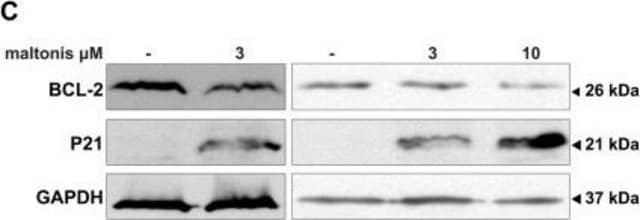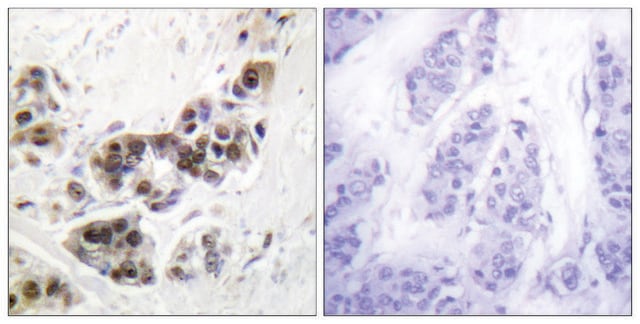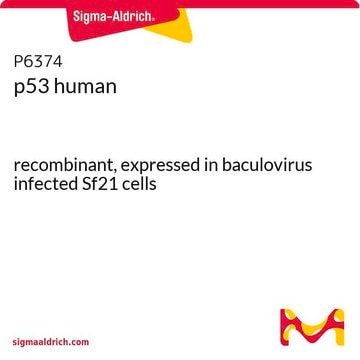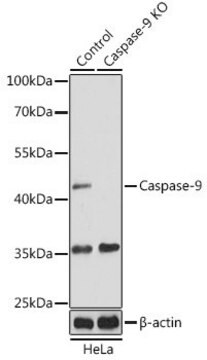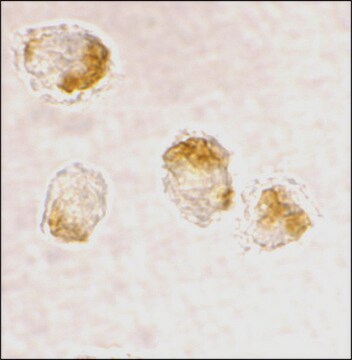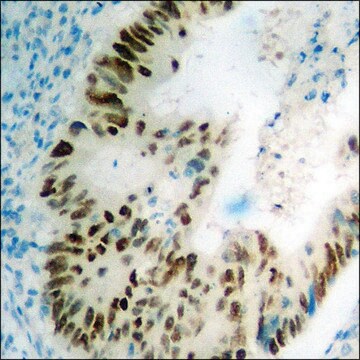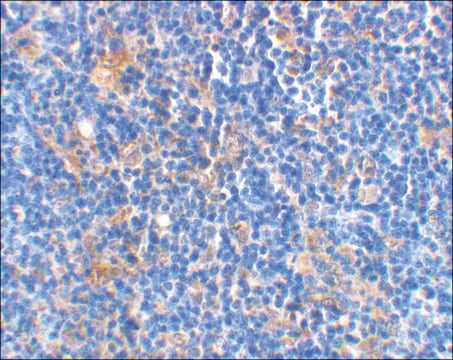SAB4500003
Anti-BCL-2 antibody produced in rabbit
affinity isolated antibody
Sinónimos:
Apoptosis regulator Bcl-2, B-cell CLL/lymphoma 2, BCL2
Seleccione un Tamaño
459,00 €
Seleccione un Tamaño
About This Item
459,00 €
Productos recomendados
origen biológico
rabbit
Nivel de calidad
conjugado
unconjugated
forma del anticuerpo
affinity isolated antibody
tipo de anticuerpo
primary antibodies
clon
polyclonal
Formulario
buffered aqueous solution
mol peso
antigen 26 kDa
reactividad de especies
rat, mouse, human
concentración
~1 mg/mL
técnicas
ELISA: 1:10000
immunofluorescence: 1:100-1:500
immunohistochemistry: 1:50-1:100
western blot: 1:500-1:1000
Nº de acceso NCBI
Nº de acceso UniProt
Condiciones de envío
wet ice
temp. de almacenamiento
−20°C
modificación del objetivo postraduccional
unmodified
Información sobre el gen
human ... BCL2(596)
Descripción general
Inmunógeno
Immunogen Range: 46-95
Aplicación
Acciones bioquímicas o fisiológicas
Características y beneficios
Forma física
Cláusula de descargo de responsabilidad
¿No encuentra el producto adecuado?
Pruebe nuestro Herramienta de selección de productos.
Código de clase de almacenamiento
10 - Combustible liquids
Clase de riesgo para el agua (WGK)
nwg
Punto de inflamabilidad (°F)
Not applicable
Punto de inflamabilidad (°C)
Not applicable
Elija entre una de las versiones más recientes:
Certificados de análisis (COA)
¿No ve la versión correcta?
Si necesita una versión concreta, puede buscar un certificado específico por el número de lote.
¿Ya tiene este producto?
Encuentre la documentación para los productos que ha comprado recientemente en la Biblioteca de documentos.
Los clientes también vieron
reoxygenation-induced cardiomyocyte apoptosis
through activation of AKT/pim-1 and AKT/GSK3?
signaling pathways
Filtros activos
Nuestro equipo de científicos tiene experiencia en todas las áreas de investigación: Ciencias de la vida, Ciencia de los materiales, Síntesis química, Cromatografía, Analítica y muchas otras.
Póngase en contacto con el Servicio técnico
